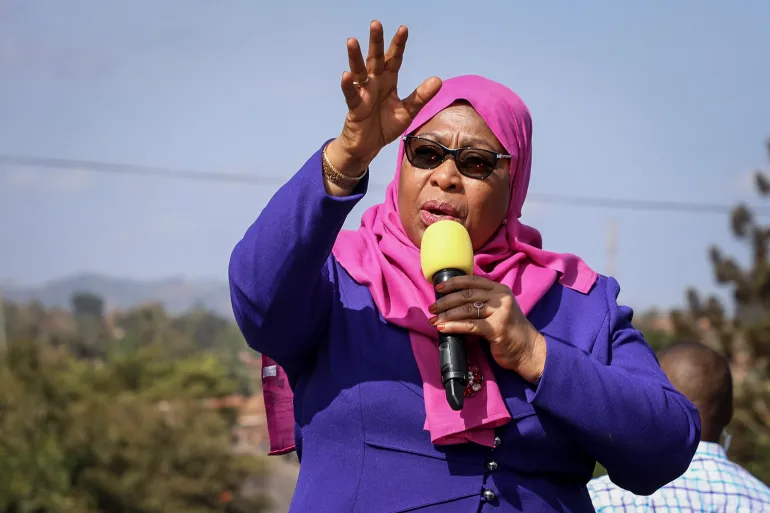
Tanzania has cancelled next month’s independence day celebrations and will divert the budget to rebuilding infrastructure damaged during unrest that followed last month’s disputed elections, Prime Minister Mwigulu Nchemba has announced.
The government’s decision comes as opposition parties and activists urge Tanzanians to use independence day on 9 December as an occasion to protest over the killings that followed the vote.
The opposition says hundreds of people were killed in the security crackdown, though the government has not released an official death toll and has instead appointed a commission of inquiry.
President Samia Suluhu Hassan was declared the winner with 98% of the vote – a result the opposition has denounced as a “mockery of democracy”. Her main rivals were effectively barred from competing: Tundu Lissu is in custody facing treason charges he rejects, while Luhaga Mpina’s candidacy was thrown out on technical grounds.
Election observers have since reported indications that the vote was manipulated and fell short of democratic norms.
Authorities shut down the internet for five days from 29 October, the day of the election, and warned citizens against sharing images from the protests. Despite this, graphic photos and videos of bodies in the streets have spread widely online, with some of the footage independently verified by international media.
The government has pushed back, accusing critics of trying to smear Tanzania’s reputation and insisting the country remains safe. Government spokesman Gerson Msigwa said on Sunday that the new commission of inquiry would establish what happened, though rights groups have questioned its independence.
At least 240 people were charged with treason in connection with the protests, but President Samia later called for tensions to be eased and urged prosecutors to “show leniency”. Many of those charged have reportedly already been freed.
Announcing the cancellation of independence day events on Monday, Nchemba appealed for calm and dialogue.
“I urge my fellow Tanzanians to come together and discuss the issues affecting us. Let us not return to what we went through, because the consequences are irreparable,” he said.
President Samia, Tanzania’s first female head of state, took office in 2021 after the death of her predecessor John Magufuli. She initially won praise for loosening some of the political restrictions imposed under Magufuli, but critics say the space for opposition has since tightened again.
